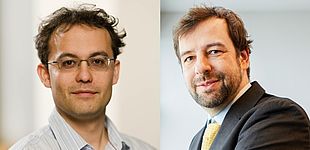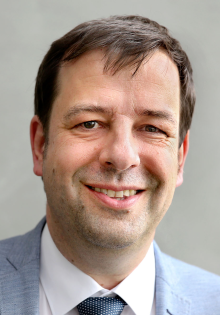One of the ten most powerful university-hosted HPC (high-performance computing) centers in Germany
The German Council for Science and Humanities has issued a funding recommendation with the highest ranking for the proposal of Paderborn University for a new high-performance computer. Between 2018 and 2022, the federal government, the state government of North Rhine-Westfalia and Paderborn University will provide a total of 25.4 million €. In two phases, a total of 10 million € will be invested in a new high-performance computer, which – presumably – will rank among the ten most powerful HPC systems in Germany when taken into operation. The proposal is subject to final approval by the Joint Science Conference (Gemeinsame Wissenschaftskonferenz, GWK) in its session on June 23, 2017. The Joint Science Conference decides on all issues in funding of science that target the federal government and the state governments of Germany and decides on science and research policies.
For the construction of the modern and particularly energy-efficient computing center, an amount of 15.4 million € is provided. The computing center will be built on the site that was formerly used by the RailCab train test track. The building will provide office space for joint interdisciplinary research at the cross section of applications, methods and computing systems research.
Professor Dr. Christian Plessl, computer scientist and managing director and head of the board of the Paderborn Center for Parallel Computing (PC²), commenting the decision of the Council for Science and Humanities: “For the continuously growing group of researchers performing interdisciplinary research at Paderborn University, having a powerful high-performance computer infrastructure is necessary to continue to perform top-level research that is nationally and internationally recognized.” As a competence center for parallel computing, the PC² studies the efficient use of supercomputers with innovative technologies and operates HPC-systems to provide academic researchers in the region Ostwestfalen-Lippe with computing services.
Due to the rapidly growing demand for computing power and the spread of computational methods into almost all areas of science, engineering and increasingly also humanities, the currently installed HPC system OCuLUS and the existing computing center can no longer satisfy the future requirements. Hence, Paderborn University has submitted a proposal for a new, larger scale HPC system and a future-oriented computing center building to the research infrastructure funding program of the Council of Research and Humanities.
The funding also includes the construction of a computing center that is specifically tailored to the needs of high-performance computing. Christian Plessl: “This investment lays the foundation for a sustained development of computational sciences in Paderborn.” Because of its national relevance, the new computer system will also be used by researchers across Germany.
Dr. Thomas D. Kühne, professor for technical chemistry and vice head of the board of PC², commenting the decision of the Council of Science and Humanities: “The funding of the supercomputer Noctua is a milestone for the research groups working with numeric methods at Paderborn University, in particular for material sciences and optoelectronics/photonics. We will be able to routinely perform simulations that would otherwise only be possible occasionally at national Tier-1 high-performance computing centers, or would not have been possible at all.” According to Prof. Kühne, the approval of the proposal should also be considered as a proof of excellence for the whole area of computational sciences at Paderborn University: “This honor is invaluable to strengthen the proposal ‘Cluster for Analysis and Optimal Design of Functional Systems (CoreFun)’ that has recently been submitted as a Cluster of Excellence proposal to the German Research Foundation (DFG).”
The first installation phase of the Noctua HPC system is planned for 2018 and will initially be taken into operation in the existing computing center. The installation of the second phase is planned for 2020 in the new computing center after its completion.
Further details on the project and the evaluation can be found in the report of the Council of Science and Humanities.


